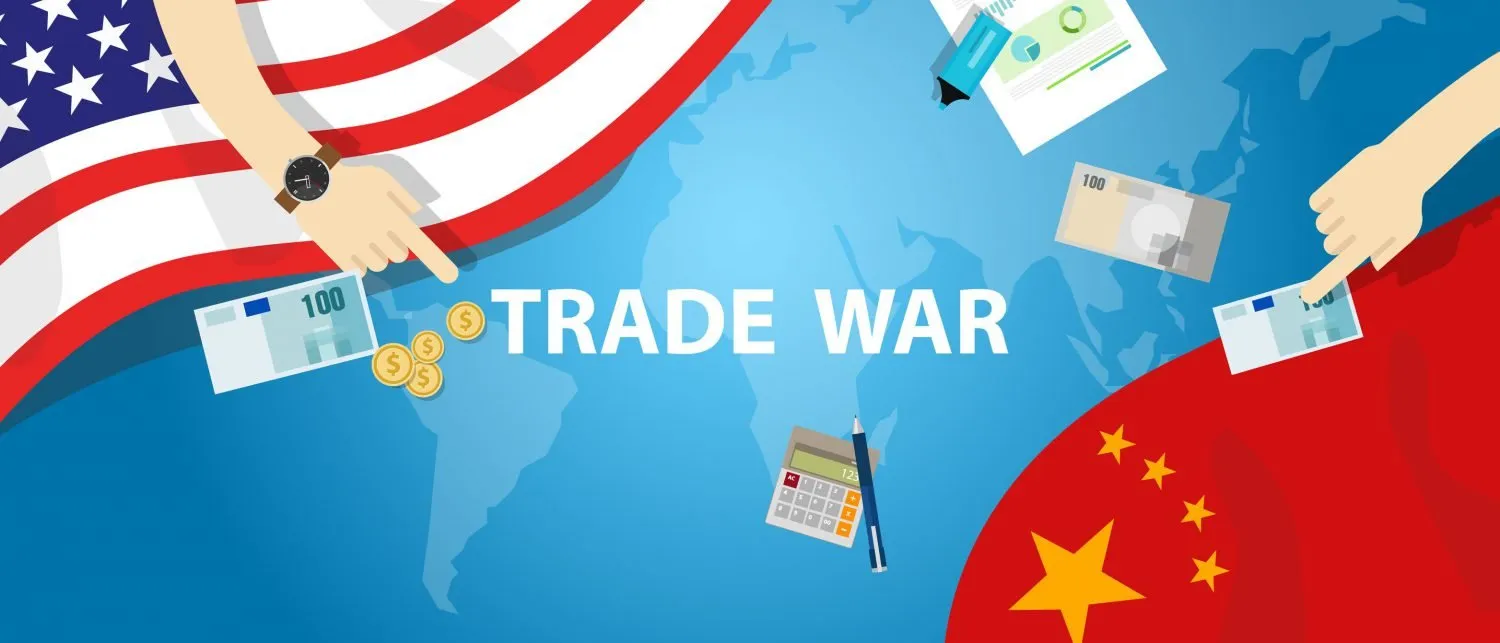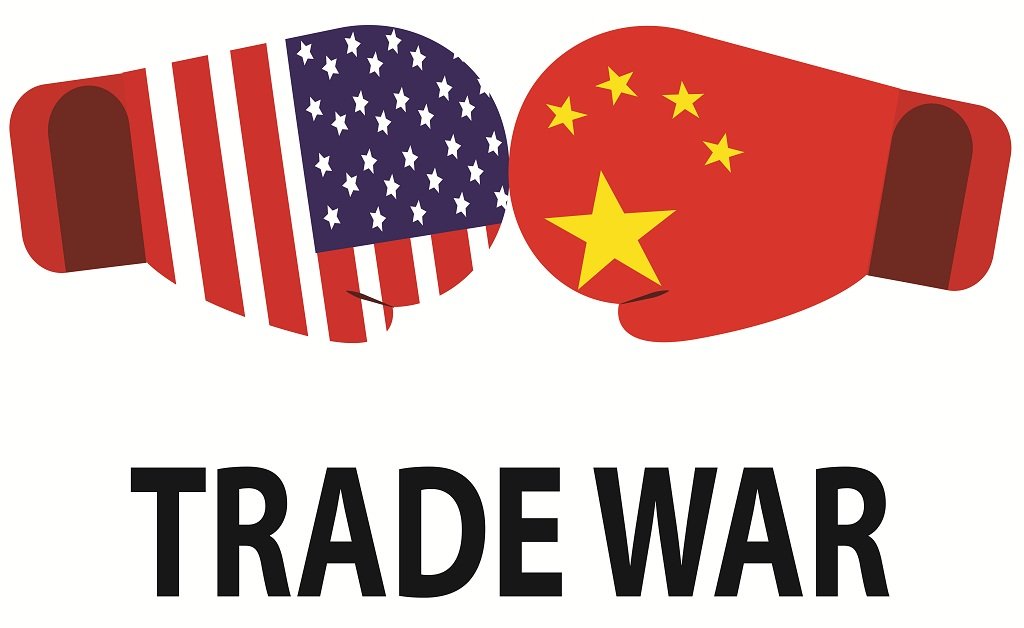The global economy is like a finely tuned machine, with every country playing a role in keeping it running smoothly. stock markets,But what happens when one nation throws a wrench into the system? That’s exactly what unfolded when former U.S. President Donald Trump imposed tariffs on key trading partners, igniting fears of a trade war. But what is a trade war, and how does it impact the countries involved? Let’s break it down.
What Is a Trade War?
A trade war occurs when countries impose tariffs or other trade barriers against each other in retaliation for what they perceive as unfair trade practices. Think of it as an economic tug-of-war—each side tries to outdo the other by making imported goods more expensive, protecting their domestic industries in the process.
Trade wars can start for various reasons, such as protecting local jobs, addressing trade imbalances, or punishing another country for policies deemed harmful. However, while the intention may be to strengthen a nation’s economy, the consequences can be widespread, affecting businesses, stock markets, and everyday consumers.
Donald Trump’s Tariff Strategy
When Donald Trump took office, he wasted no time in reshaping U.S. trade policies. Citing national security concerns, illegal immigration, and drug trafficking, he imposed steep tariffs on imports from China, Mexico, and Canada—three of America’s largest trading partners.
A 25% tariff was slapped on imports from Canada and Mexico.
A 10% tariff was added to energy resources from Canada.
China, already facing U.S. tariffs, saw an additional 10% duty on its goods.
These tariffs were meant to address key issues, but they also sparked tensions, leading to countermeasures from affected nations.
How Countries Retaliated
Trade wars aren’t one-sided. When the U.S. raised tariffs, the affected countries responded in kind:
Canada imposed a 25% retaliatory tariff on U.S.-made products.
Mexico announced similar retaliatory measures.
China was expected to hit back, though no official announcement had been made at the time.
These retaliatory actions meant that American exporters faced higher costs when selling their goods abroad, creating ripple effects throughout the economy.
Impact on Everyday Consumers
You might be wondering—how does all of this affect the average person? The answer: higher prices. When tariffs increase, companies pass the extra costs down to consumers, making everything from groceries to cars more expensive.
Among the products most affected were:
Fruits and vegetables
Meat and dairy products
Automobiles
Electronics
Toys and clothing
Gas and energy resources
Beer and spirits
With a third of U.S. imports coming from China, Mexico, and Canada, the impact of these tariffs was felt in homes across America.
Effect on Stock Markets
Financial markets thrive on stability, and nothing unsettles investors more than uncertainty. The mere announcement of Donald Trump's tariffs sent stock markets into a frenzy.
The Dow Jones Industrial Average and S&P 500 saw sharp declines as fears of a prolonged trade war grew.
Investors rushed to safer assets, causing volatility in commodities and currency markets.
Major companies reliant on international trade, such as Apple and General Motors, warned of profit declines.
When tariffs lead to reduced trade, corporate earnings take a hit, further dragging down stock markets.
Business Backlash and Economic Warnings
Not everyone was on board with the tariff strategy. The U.S. Chamber of Commerce issued a stark warning:
"Tariffs won’t solve border issues; instead, they will upend supply chains and raise costs for American families."
In simple terms, tariffs were seen as a blunt instrument that could do more harm than good. While they aimed to address national concerns, they risked damaging long-standing trade relationships and economic stability.

Could a Trade War Backfire?
One of the biggest risks of a trade war is unintended consequences. If tariffs make imported goods too expensive, businesses may struggle to find alternative suppliers. Worse, if other countries impose their own tariffs, U.S. exports could suffer.
Imagine trying to build a house but suddenly, the price of lumber skyrockets due to tariffs. That’s what many industries faced—supply chain disruptions leading to higher costs and reduced competitiveness in global markets.
Lessons from History
Trade wars aren’t new. The Smoot-Hawley Tariff Act of 1930, enacted during the Great Depression, worsened economic conditions by reducing global trade. Many economists warn that similar protectionist measures could have long-term negative effects.
History has shown that while trade wars may start with good intentions, they often escalate beyond control, impacting global economic growth.
What Happens Next?
As new administrations take charge, trade policies evolve. Some tariffs may be lifted, while others may be renegotiated. However, the lessons from Donald Trump's tariffs remain clear—trade wars are risky, and their effects can linger for years.
If the global economy is a delicate balancing act, then tariffs are like shaking the tightrope. The key to long-term stability is not isolation but fair trade policies that benefit all parties involved.
Read More: Todays stock market news and analysis
Conclusion
At the end of the day, a trade war is much like a high-stakes poker game—every country tries to bluff and raise the stakes, but in the end, everyone risks losing. Donald Trump's tariffs were meant to protect American interests, but they also ignited global tensions, impacting businesses, stock markets, and everyday consumers.
While tariffs can be a useful tool, they come with consequences. For economies to thrive, collaboration and negotiation often prove to be more effective than confrontation. The world is more interconnected than ever, and trade wars remind us that when one country makes a move, the entire globe feels the impact.
Other Popular Blog Post:
India Economic Survey 2024-2025 | JSW Energy Share Price | Tata Tiago Accessories | Republic Day | Guillain-Barré Syndrome | Trent Share Price
Explore other popular Posts:
Blog | News | Entertainment | Education | Sports |
Technology | Cryptocurrency | Stock | Home | Sitemap





